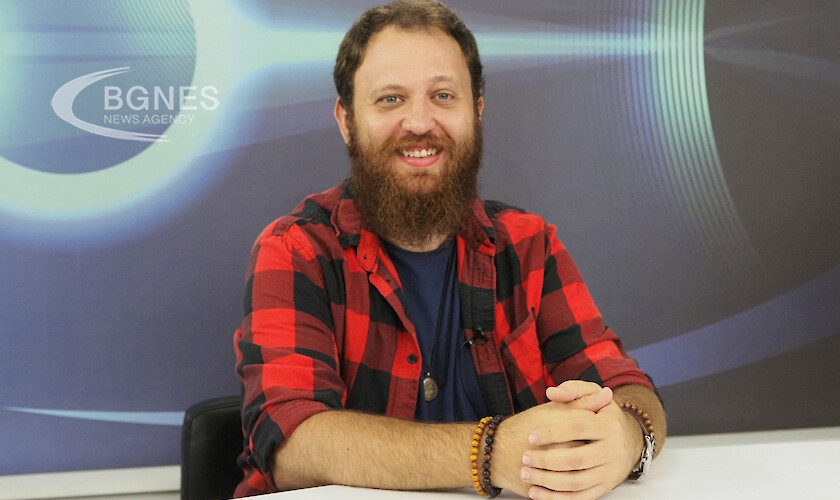Georgi Stoev: Students in Bulgaria should solve problems, not create them
We need to educate people who solve problems, and now there are only those who create them, this is what Georgi Stoev, winner of the Young Teacher of the Year award for Plovdiv region, said on BGNES' English-language morning block.

"Most students do not see the benefits of learning because they cannot use it in life. That's what needs to change, the whole idea around what education is. We need to educate people who solve problems, and now there are only those who create them," Stoev said.
He continued on the topic, giving examples of how his school is different and why the current way of education is not optimal.
"In my school, we try to work with all students and their every interest. No matter what it is: music, math, cinema... We work a lot with informal education. An example is film making, many students want to be involved in the film industry. The success for this is that we have qualified for several student film awards."
"For me it's important to work with children outside the classroom as well. This informal communication helps children improve," he added.
"When I'm in the classroom I don't want to just teach my subject. There has to be global competence, that means using knowledge from school to deal with problems in life, practical lessons. When people talk about education reform, this is what they mean. Our students need to be able to solve real problems with what they have learned at school. In Bulgaria they learn only theoretically, nothing practical," emphasised Stoev.
He also mentioned initiatives taken with the EU.
"We work with the EU EPAS program, this year students had the opportunity to go to Brussels. The whole idea of the program is to educate children more about the ideas and institutions of the EU. We organized an event with over 300 students together with MEPs. This gave the children the opportunity to get in touch with the EU."
Stoev also talked about his interesting trips to Finland and building a refugee camp in Africa.
"In Finland we visited many schools. Bulgaria can take an example from their system. For example, during art classes they look at real issues, such as human rights, so it brings what is taught closer to reality. Even with art, children can touch on issues in the world. This should be done more, every lesson should bring children closer to the world."
"For the refugee camp in Africa, I needed my students to accurately apply their knowledge from school to a real problem. They had to do research, organize data and choose where that camp should be. It all ended in success," Stoev concluded. /BGNES




